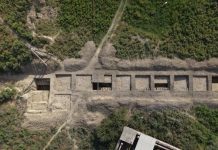BEIJING: When five-month-old Linlin, a pseudonym, was diagnosed with a rare disease, her doctors took an important step. Before beginning treatment, they removed and preserved part of her ovary to protect her ability to have children in the future.
The treatment Linlin needed, a hematopoietic stem cell transplant, can be life-saving but often comes at a cost, as it may cause irreversible damage to ovarian function and fertility. When Linlin’s mother learned of this risk, she was determined to do everything possible to safeguard her daughter’s chance of becoming a mother.
Each year, a significant number of women and girls are diagnosed with either cancer or rare diseases, and even after successful treatment, many are left unable to have children because of chemotherapy, radiation or surgery, said Du Rui, chairperson of the China Women’s Development Foundation.
This is not only a personal loss, but also an issue that impacts family happiness and social harmony, Du added.
With advances in medical technology, China has introduced a range of measures to help female patients preserve their fertility. As the country is working to save lives, it is also striving to improve the quality of lives.
Linlin’s ovarian tissue is being stored in the cryobank at the Beijing Obstetrics and Gynecology Hospital (BOGH), waiting to be “woken up” for the chance to serve as the source of new life.
This frozen “Noah’s Ark” was initiated by Ruan Xiangyan, founding director of the department of gynecological endocrinology at the BOGH.
Since Ruan introduced the technology of ovarian tissue cryopreservation and transplantation to China in 2012, nearly 900 female patients suffering from cancer or rare diseases have had their ovarian tissue stored in this cryobank. Among those having their ovarian tissue transplanted, two have successfully given birth to healthy babies.
“It’s a tragedy when treating an illness takes away the chance to have children,” Ruan said. “We must protect women patients’ right to motherhood.” In order to make ovarian freezing services accessible to more people, Ruan has helped train doctors from over 300 hospitals across the country for the past seven years. Thanks to collective efforts, a nationwide fertility preservation network has been established, allowing ovarian tissue from as far as Hainan, China’s southernmost island province, to be transported to the BOGH cryobank within 24 hours. –Agencies






